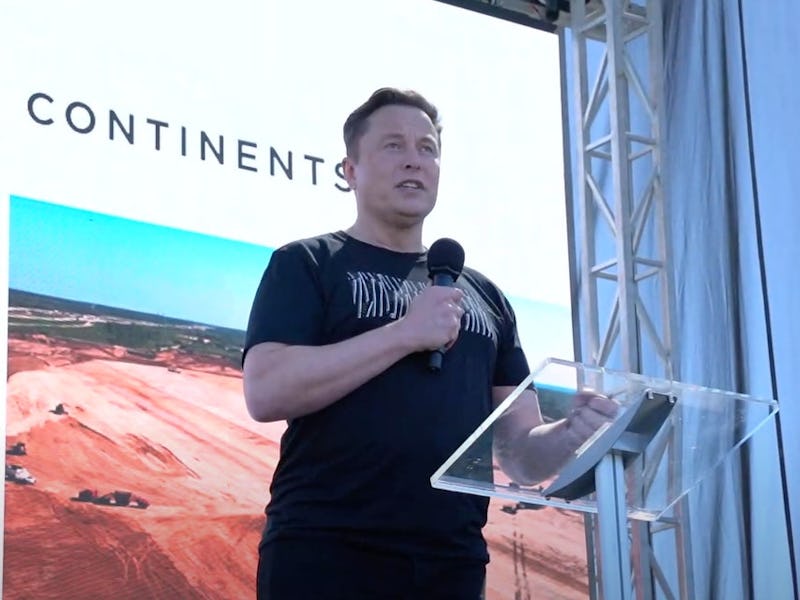Elon Musk’s plan to tackle climate change missed one crucial element
The United States’ electric grids are already struggling, and climate change will make matters worse. But an overlooked technology could hold the answer.

At Tesla’s September 2020 Battery Day event, Musk gave an impressive outline for how the world can transition to sustainable energy. For those who didn’t watch the event live, we can tell you that it involves batteries. Lots and lots of batteries.
- To fully electrify transportation, battery production for electric vehicles would need to increase 100-fold above current levels, estimated at 0.1 Terawatt-hours, to reach 10 Terawatt-hours.
- To electrify other high-energy use industries, battery production for applications other than electric vehicles needs to jump 1,600-fold above current levels, estimated at 0.006 Terawatt-hours, to reach 10 Terawatt-hours.
That means, in total, battery production would need to reach 20 Terawatt-hours per year.
The Tesla presentation focused on lithium-ion batteries, but there’s a big issue: The United States Department of Energy claims current grid-scale lithium-ion batteries can supply energy for up to 1.7 hours on average. Fine for short-term use but not so great for longer periods of time.
Want to know more about Musk’s plan, what it misunderstands about batteries, and energy aficionado Jonas Eklind’s thoughts on a potential fix? Read the full report, only in MUSK READS+.
The big problem:
“That unstable network grid system is supplied with intermittent renewables. This together really is a recipe for chaos.”
Jonas Eklind, CEO of energy storage firm Azelio.
What you need to know:
- Energy entrepreneur Jonas Eklind’s firm Azelio is developing longer-duration energy storage products.
- The idea is to provide power for longer than a normal lithium-ion battery. Some designs include pumped hydro and heated aluminum.
- Texas, New York, and California have faced huge blackouts in recent years. As more people switch to electric cars and similar appliances, electricity use will increase — and the grid will face heavier loads.
TO READ THE FULL REPORT, SUBSCRIBE TO MUSK READS+.
Here is what you will gain from subscribing to MUSK READS+:
- Three emails per week, enabling fans to go deeper into the week’s news.
- Original interviews and reporting, longform analysis, previews and recaps of major events, including earnings calls and more.
- Community-focused extras like responses to reader mail, an upcoming event calendar, and notable anniversaries.
- An archive of previous subscriber-only content, so you can easily read back over what you might have missed.
- Promotional deals and offers.
- Supporting original, independent journalism.
MUSK READS+ is a fully independent operation. We are not Elon Musk, nor are we employed by him. Our job is to report the events we find newsworthy, giving you the inside look at the worlds of space rockets, electric cars, clean energy, and more. It means first-hand accounts of a SpaceX rocket launch, Tesla insights from third-party analysts, and more.
If you want to support us in our mission, and receive original interviews and analysis, consider contributing with a subscription.